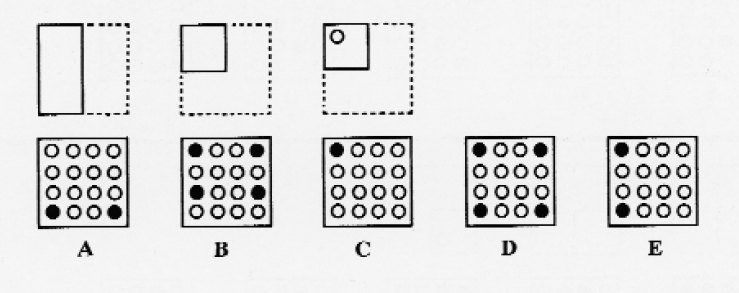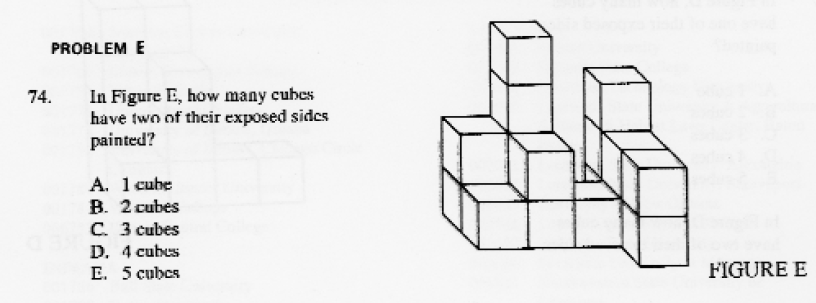Part 3 of a series of breakdown posts that will outline the 2017 Dental Admission Test.
Be sure to check out the other breakdown posts on each section of the DAT 2017 too!
Today let’s dive into the…
Perceptual Ability Test a.k.a. the PAT section!
The Perceptual Ability Test exams your spatial ability and reasoning (two important things for a dental career I’d imagine) with six different kinds of visual mind games. Love or hate it, the PAT section is the second section you’ll hit on DAT 2017 day!
This section immediately follows the big Survey of Natural Sciences section and is before the scheduled break so your brain might be feeling a little drained.
You have 60 minutes to answer 90 questions!
There will be 15 questions on each of the 6 kinds of PAT questions.
Here are basic breakdowns of the instructions plus examples of the 6 types of Perceptual Ability Test questions below:
Apertures aka Keyholes, 15 questions
You are given a 3D object along with 5 openings and you have to determine which aperture the shape could pass through (in any orientation). Example:

Answer: A. These types of questions remind me of that Japanese game show that’s like human tetris: hilarious example. Maybe that helps you visualize these types of questions better, maybe it doesn’t but either way fun to watch. ¯\_(ツ)_/¯
View Recognition aka Top Front End, 15 questions
Here you will be presented with 2 of 3 views of an object: Top, Front, and/or End and your job is to pick the third view not given. Example:

Answer: C. Similar to the Keyhole problems the main thing is to be able to visualize the 3D object. Here’s you’ll need to do it with only two sides.
Angle Discrimination aka Angle Ranking, 15 questions
You are given 4 angles to rank in order from smallest to largest. Example:

Answer: B. Seems pretty straight forward and this example isn’t too hard to see it but these questions can get tricky. There are quite a few different strategies out there to consider but it’s with practice that you’ll find a way that works best for you.
Paper Folding aka Hole Punching, 15 questions
A square piece of paper is folded one, two, or three times then one or more holes are punched through it. You then have to visual what the paper looks like now with the holes unfolded.

Answer: D. One suggestion I found online was to actually practice with a real piece of paper and hole puncher. This practice can make it easier to visualize it in your head once you really see it with real paper.
Cube Counting, 15 questions
You have various stacks of cubes stuck together then you have to imagine that the resulting shape is painted on all sides except for the bottom. You will be asked to determine how many cubes have how many of their sides painted. If that sounds a little confusing, that’s because it is. Example:

Answer: C. It’s a little hard to explain but you’ll really get the hang of this subtest with practice (I know that’s the whole theme here but it’s because it’s really true)!
3D Form Development aka Pattern Folding, 15 questions
You are given a flat pattern and you must pick the 3D object the flat pattern will make when folded.

Answer: C. Pro Tip for practicing: Side counting and visualizing.
It’s pretty clear the best way to ace this section is with PRACTICE and lots of it.
The great thing about DAT Cracker is that once you take the (free) diagnostic test and pin point which areas you need the most work in, you can hone in on the kind of PAT questions you want to work on. So if you’re bomb at Keyholes but Cube Counting is tough, you can focus on practicing just Cube Counting.
With practice you can really ace this section.
Remember like with every section, do your favorite/the easiest questions first. You are more likely to get the ones you’re more comfortable with right and it’s the number of correct responses the counts!
